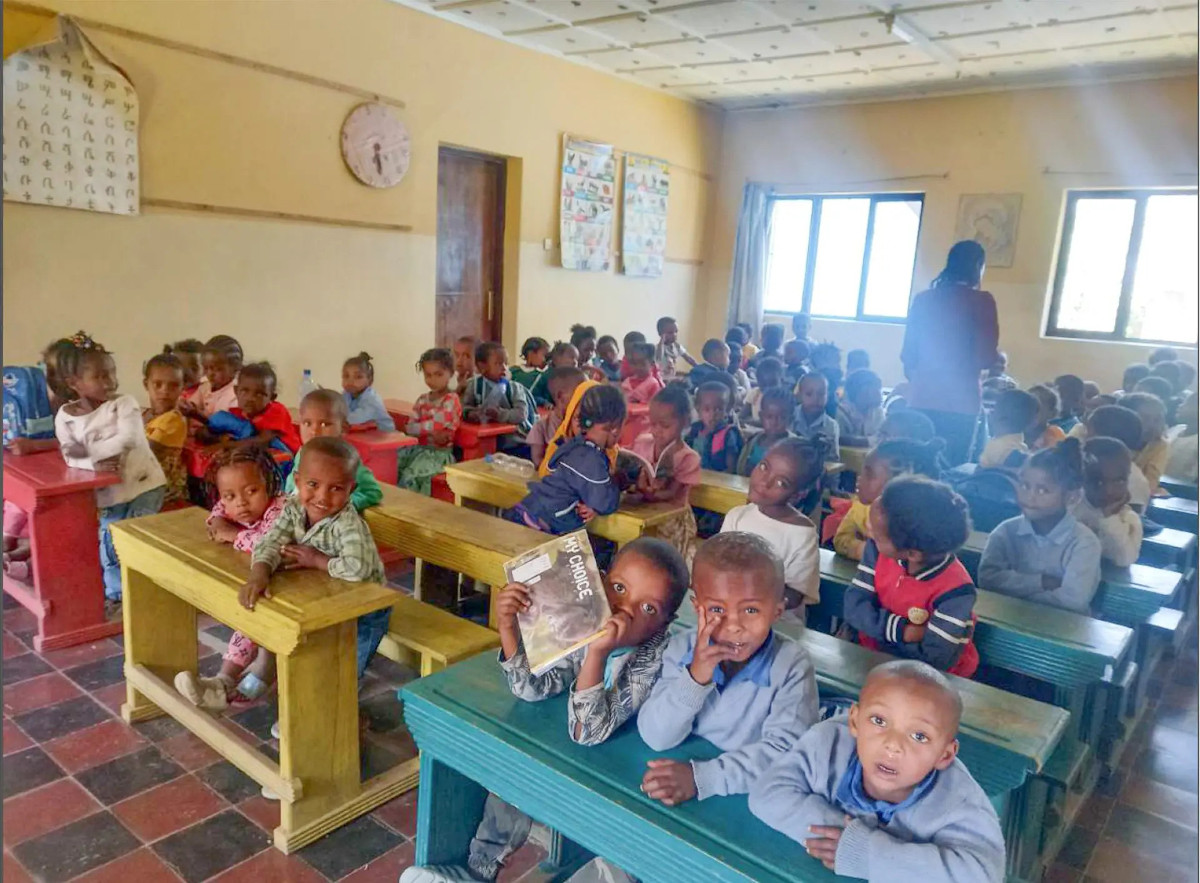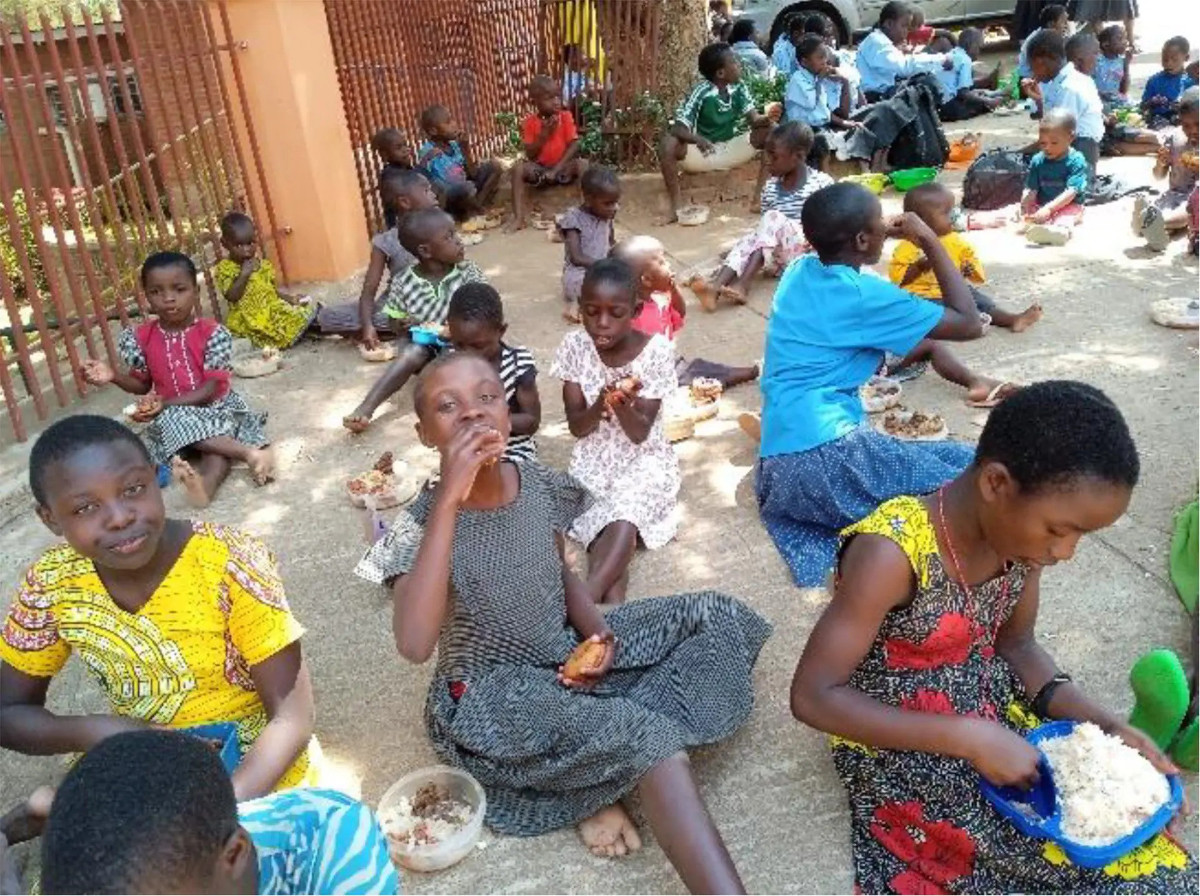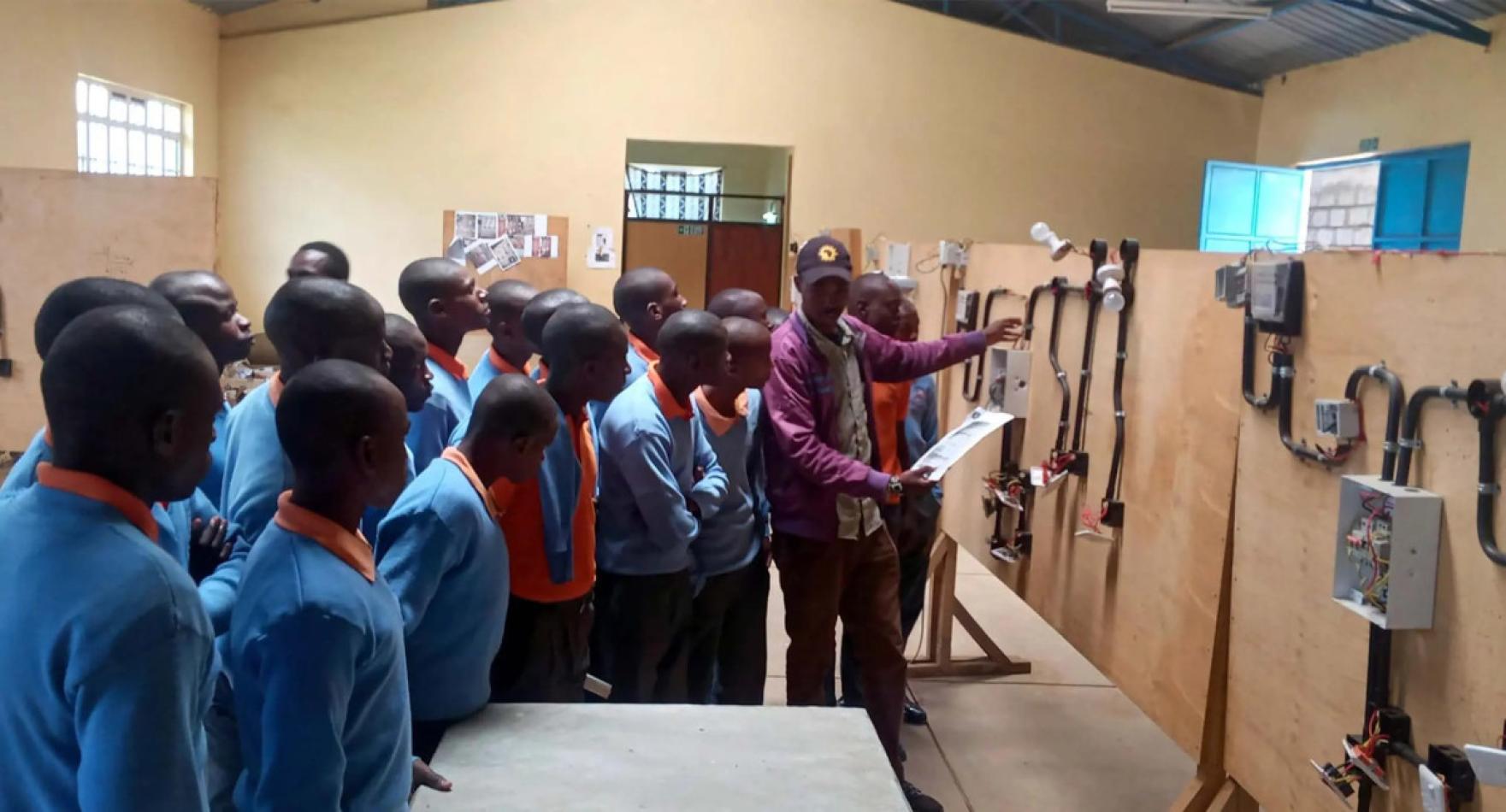Daniel Comboni
Comboni Missionaries
Institutional area
Other links
Newsletter
Wednesday, December 6, 2023
The North American Province of the Comboni Missionaries launched a feeding program in 2012, providing direct access to food in critically underserved areas. The program is funded primarily by a handful of generous donors, but there are concerns about its future. [In the picture: Former street teens in Nairobi, Kenya, start new lives at the Daniel Comboni Vocational Training School. NAP funds help feed 250 children daily. Comboni Missionaries]
Mission Office Director Charla Schneider explains: “The feeding program has done an incredible amount of good work for people around the world, but it’s not something we really promote, so it’s not widely known. We have some very generous benefactors who contribute, but we need a wider donor base to continue the program.”
“If one of these sponsors were to withdraw their support, we’d be in crisis,” she says. “And we have to think ahead to the future — no one lives forever.”
The NAP Feeding Program’s reach is global, but we’re taking a closer look at a few areas it serves and the people who most depend upon it.

Mapuordit, South Sudan
Mary Immaculate Hospital in Mapuordit, South Sudan, is a beacon of hope in a region plagued by hunger, hardship, and limited access to healthcare. Founded by Brother Dr. Rosario Ianetti, a Comboni Missionary Brother and surgeon, this hospital has been a lifeline for the community, providing essential medical services and nutritional support.
The NAP Feeding Program has been transformative for this community. Its primary goal is to offer nutritional support to people facing severe food shortages or malnutrition. Good nutrition is recognized as a crucial element in the overall treatment plan for these groups: Patients that can’t eat don’t recover.
In much of Africa, hospital patients are expected to provide their own food. Often, family members will come to the hospital with them to cook meals. For the exceptionally poor at MIH, however, this is not an option. Brother Rosario explains that many patients have “no family support, either because they have come from too far away or, the family is too poor to provide a meal for the patient.”
In this region, few can manage to pay for life-saving medical services, much less manage to pay for meals. Few patients have family who can afford to take time off work or step away from childcare responsibilities to travel long distances to be with them.
The NAP Feeding Program means that these patients are provided adequate nutrition during their stay — essential to their healing — and, upon discharge, the hospital sometimes provides dry rations to patients who would otherwise face severe underfeeding or malnutrition.
The funding allocated to the hospital for this program has allowed them to offer a cooked meal and two cups of nutritious porridge to patients admitted to the wards. This support extends to patients with tuberculosis (TB), HIV, psychotic disorders, and chronic illnesses requiring extended hospital stays (such as epileptic patients who, during seizures, have sustained extensive burns or other injuries that take extra time to heal.)
In the first quarter of 2023 alone, an astounding 2,524 patients were provided with nourishing meals. Brother Rosario expressed his gratitude for the funding in a recent letter, noting, “Apart from the malnourished children, we continue to feed the TB patients, as well as malnourished elderly adults who at times are abandoned as their children have moved to other more fertile areas.”

Nairobi, Kenya
According to Fr. Maurizio Binaghi, mccj, “The Comboni Missionaries established Napenda Kuishi Rehabilitation Program Trust in 2007 to answer the plight of street children in the slum of Korogocho, in Nairobi.”
“It started as a program for small children operating out of our facility in Korogocho,” he says, “but in the course of many years the project has developed into a fully-fledged rehabilitation program for teens and young men.”
These street teens face numerous challenges, including addiction to substances like glue and pain medications found in the Dandora dumping site, as well as consuming the toxic local brew known as “Changaa.” Violence is a constant threat to these street children.
Today, Napenda Kuishi manages three rehabilitation centers. Boma Rescue Center and Kisumu Ndogo Center provide a safe space for around 70 to 75 teens daily and Kibiko Residential Home is a full-spectrum rehabilitation facility. It also operates a halfway home for teens who are in school and ready to be reintegrated into society as well as the Daniel Comboni Vocational Training School. Here, Fr. Maurizio says, “teens who have completed their rehabilitation are trained and certified in carpentry, electrical wiring, welding, plumbing and masonry, and starting in 2022, auto mechanics.”
One of the essential services provided by Napenda Kuishi is daily meals for approximately 250 children and teens. The NAP Feeding Program is a major source of support for this effort. Not only do these meals directly help to alleviate hunger, but they also reduce the likelihood of these teens resorting to criminal activities or violence out of desperation.
Napenda Kuishi’s approach is comprehensive. They begin by addressing immediate hunger and then move to tackle the more complex issues. Drug rehabilitation is a key focus, as it helps the teens break free from all-too-common addictions. The organization also places importance on education, both in formal schools and vocational training. For those who have lost touch with their families, they work on family reunification. Ultimately, their goal is to help these young individuals transition to a self-sufficient and independent life.
The transformations are lasting and dramatic. In September, Duncan, a former student and beneficiary of Napenda Kuishi, enrolled in the University of Nairobi to pursue his law degree. He credits the program as helping him go “from living on the streets to joining the most prestigious university in Kenya.”
In a city where these street teens face considerable challenges, Napenda Kuishi and the NAP Feeding Program provide a glimmer of hope and an opportunity for a brighter future.
Soweto, Kenya
In the Soweto slum of Kenya, the NAP Feeding Program supports hundreds of mothers and children.
Srs. Susheela and Thainees, Sisters of the Apostolic Carmel, operate a daycare in Soweto. Every day, 197 children ages 3 to 6 attend the daycare where they receive an education and three daily meals. Because their children are safe in the care of the Sisters, mothers can work to support their families.
An additional 100 elderly and housebound individuals also benefit from the feeding program. Each family receives 10 kilograms (about 22 pounds) of maize flour every month. During the holidays, 300 children receive one meal a day, which replaces their breakfast and lunch.
And Countless More . . .
The NAP Feeding Program also supports an orphanage in Asmara, Eritrea, committed to supporting children who are HIV/AIDS positive. Sr. Senait Berhe of the Good Samaritan Sisters, says, “We thank God and all the benefactors who provide the basic necessities for the poor. We are doing our best.”
Another beneficiary is the John Paul II Home for Children with Physical Disabilities in Lokichar, Kenya, which provides care for children with disabilities, many of whom are HIV positive. Ensuring that these children receive a healthy meal is crucial before they can begin physical therapy or other medical interventions.
The NAP program also sustains 280 kindergartners in Tullo, Ethiopia, — when it can. Sr. Meseret often struggles to make ends meet there. A recent gap in funding had her reporting, “I have used everything I had. We have had to stop the feeding program until more support arrives.”
If you’d like to become a lifeline for the hungry, please consider supporting the NAP Feeding Program with a one-time or recurring donation.
By Kathleen M. Carroll
The North American Province of the Comboni Missionaries




